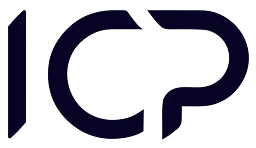Project time - 5 days sprint method
Project management time in 5 days, that is one hundred and twenty hours-this is the time you need to complete virtually any project and, in more detail, turn...

Tell our team about your needs and we will customize the tool as part of your chosen package!
Project management time in 5 days, that is one hundred and twenty hours-this is the time you need to complete virtually any project and, in more detail, turn the idea into an operating, often sales-generating, prototype. Three specialists working for the largest corporations in the world have proved the 5 days work time to be efficient. These three men are Jake Knapp, John Zeratsky, and Braden Kowitz. What is the recipe for project success? This is a method of project management for a 5-day sprint, which can be applied practically in any enterprise.
5-day project management sprint examples
Two exemplary projects in which the solution called "5-day sprint" was used are:
- The development of a website and internet shop for a well-known coffee brand, Blue Bottle Coffee;
- creation of a robot used in the hotel, service, and medical industries. Namely, the Relay robot, manufactured by Savioke.
As you can see, these are very different tasks and industries. This method worked in both cases. The website is a beta version that was ready in five days, but what matters is the fact that information about coffee, its drinking rituals, etc., was revealed during the sprint. The robot was ready to perform the first tasks three weeks after the sprint. So, how do these five days correspond to those last few weeks or months? Sprint aims to find the final solutions as quickly as possible, even if it requires extra work at a later stage. Sprints of this type enable the team to see the ready product and the clients’ response to it. It is not necessary to make costly investments, contribute a lot of money, lose tons of time, and only later see that the idea stinks and clients will not accept it.
The power of 5-day projects
Each such action consists of five stages, out of which each is assigned to one day:
- Monday: the creation of a project map and goal selection. A map can be, e.g., a website layout and the goal – online sales of coffee;
- Tuesday: development of professional, competitive solutions: it can turn out that the first idea is not the best one, so we can find an alternative solution;
- Wednesday-brainstorming and selection of the option which allows for the optimum achievement of goals set on Monday;
- Thursday: the creation of a realistic prototype-it does not have to be the entire website, complete product, or complete service; it is just about the functionality that is most important to us. In the case of the Relay robot, it was a driving model with a display and an installed camera so that clients’ reactions could be registered;
- Friday: prototype tests among target clients, i.e. nothing else, but reaching out to our target group and showing them its operation. Here, it is important to collect feedback and analyze it. This day is a real "to be or not to be" for a project. It could turn out that our assumptions were wrong and the prototype just did not meet the client’s expectations. What do we gain? We save money and implementation time. The incurred costs entail the work of a maximum of seven people who participate in the sprint plus materials that may be necessary for the creation of the beta version.
How to build a team?
An optimum team consists of 7 people. This includes:
- a decision-making person-president, company founder, somebody who can take the most important implementation decisions;
- expert in financial matters—someone who can explain how to finance the subsequent stages, where to get money, and so on: can be, e.g., the financial director.
- A marketing specialist—somebody who can sell the idea further, at the same time giving it personality traits that are consistent with the message and mission of the company;
- Customer specialist—someone who is familiar with our clients, knows who the target persons are, and what the target segments are.
- logistics and technology expert—somebody who can easily handle the technical issues and will find necessary solutions;
- A project specialist is somebody who creates or creates other company products and who understands the philosophy and method of their creation.
What matters is the regularity and rules, not the time.
The 5-day sprint turns a typical working day in many companies upside down. We get concrete project blocks instead of wasting time on yet another meeting, e-mail, or phone call. According to Knapp, each working day should last from 10:00 to 17:00, including one hour for a lunch break and a short coffee break. A typical project sprint means six hours of active work. "Starting at 10:00, we give each person time to check their e-mails and find out what is going on before the day starts." However, something else is the most important thing in the entire process. Specifically, the rule of leaving other activities To conduct and complete the project in this period, each morning, all team members switch off their phones and cut themselves off from everyday distractions. There is no time for e-mails and Facebook. There is only the project. There are two exceptions to this rule. Breaks are for us, and then we can use all the devices. If it is really necessary to answer the phone, it must be done outside the meeting place. Additionally, to get started, we may need whiteboards, markers, and a lot of space for extra notes.
It is worth reading about the course of sprints in the book written by Knapp and his colleagues. It shows step-by-step, the consecutive stages of action and includes many great examples of successful implementations that were born during these types of meetings. It does work. This way, you can introduce a new product to the market, improve the client support quality, and find alternative solutions for the current state of affairs in the company. 5-day project manager time has the right to exist if we stick to the rules.
Also read

Which is a benefit of collaboration and teamwork?
Working with others can feel slower and more complex than working alone, yet collaboration continues to play a key role in learning and work. In this article, we take a closer look at the real benefits of teamwork and why it often leads to better results.
Try IC Project in your company Our team is ready to help!

Create a free account and test with no obligation




.png)